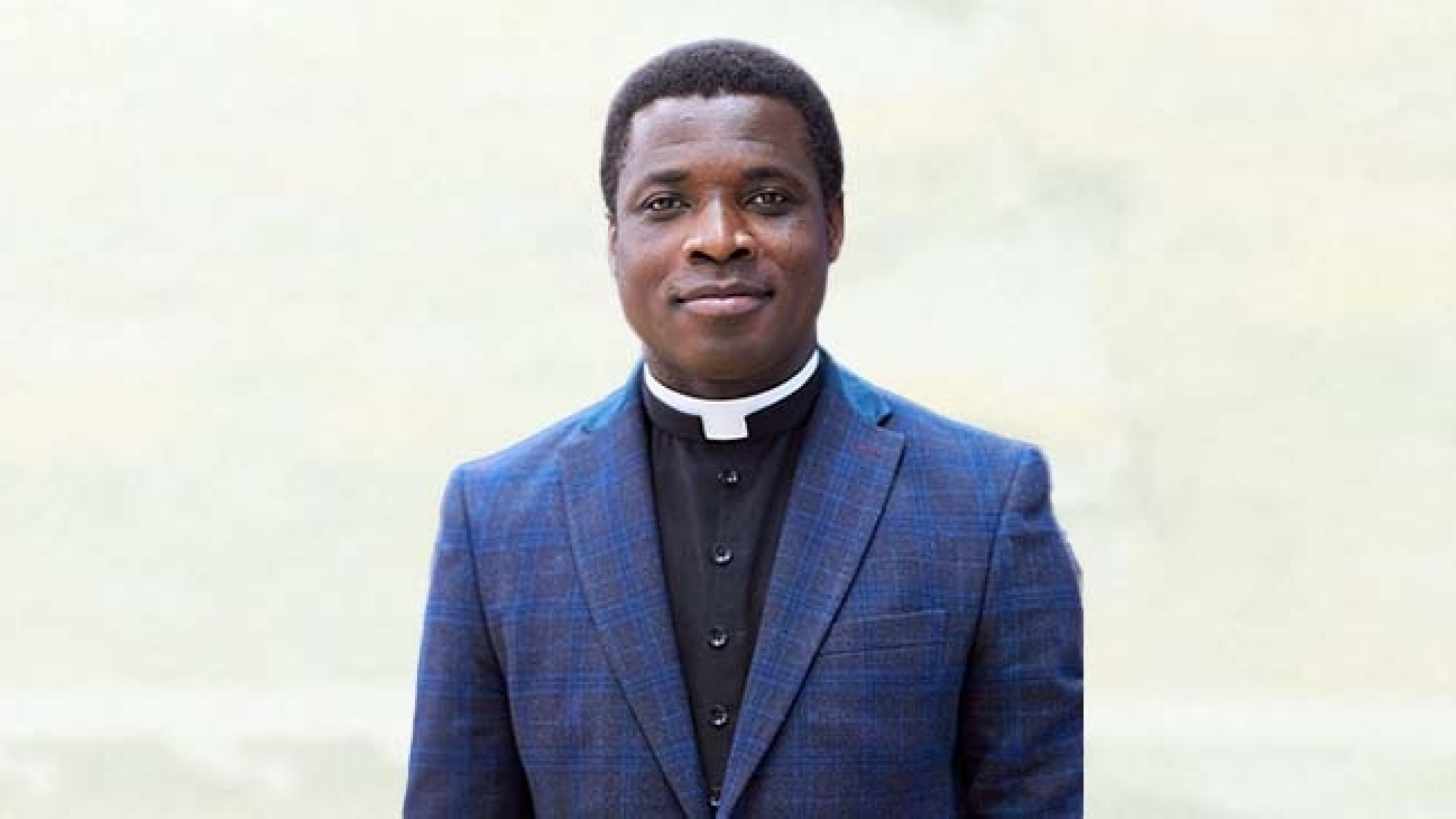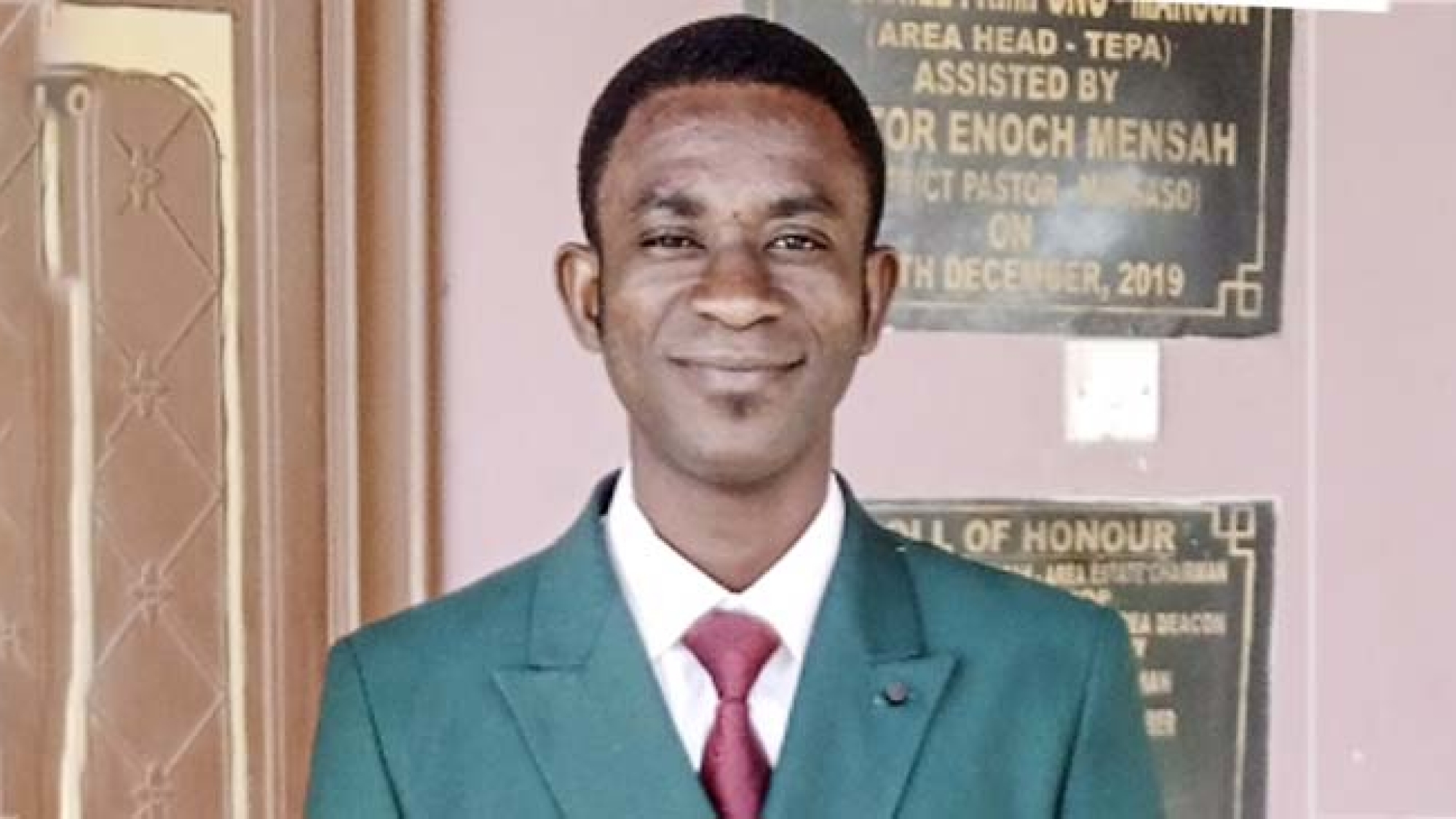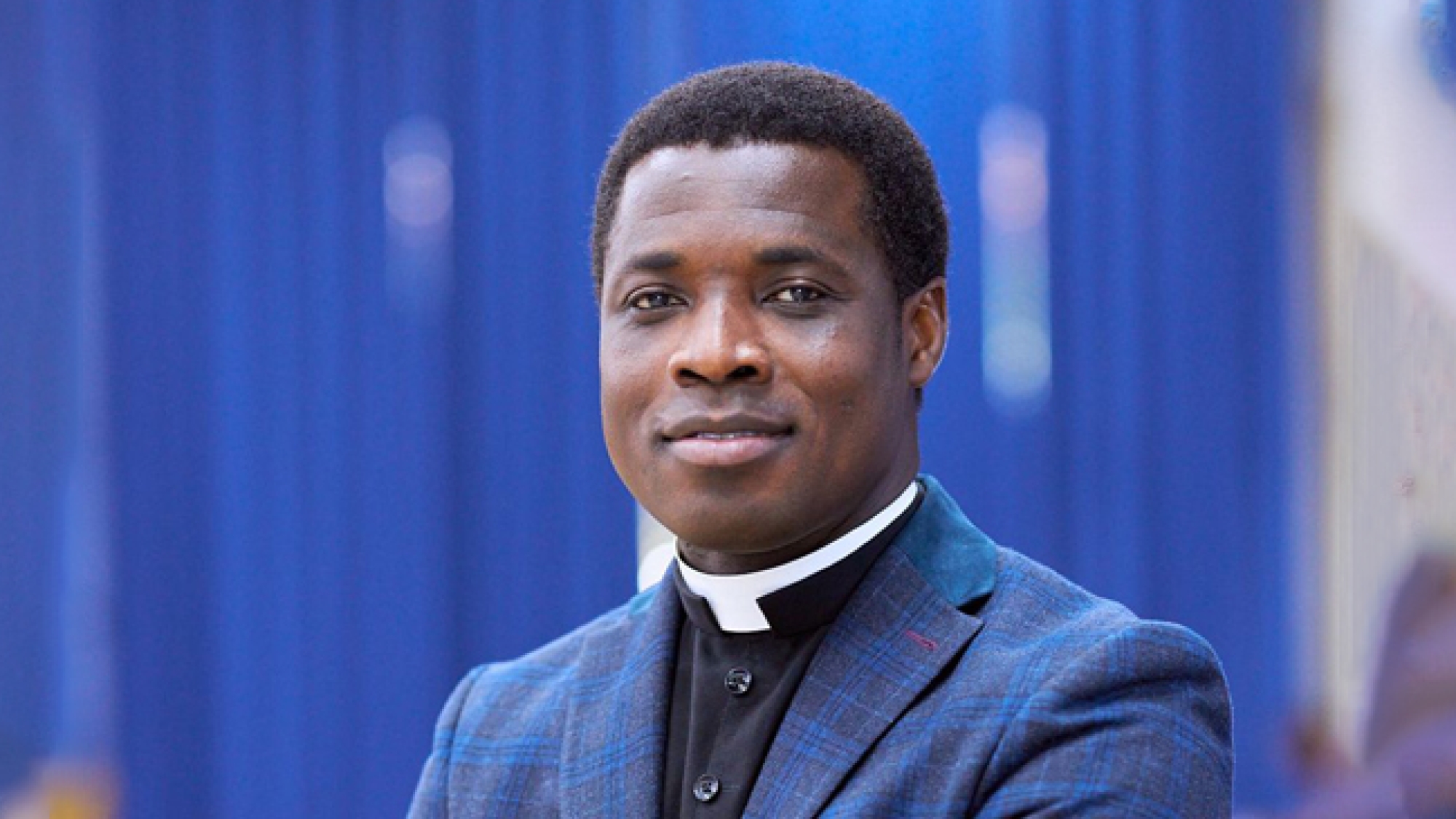By Pastor Fred Amoakohene Sarpong (Resident Minister, Prophet M. K. Yeboah Worship Centre, Kasoa Area)
Music plays a central role in worship, shaping the spiritual experience and fostering a sense of community. In contemporary worship settings, especially in City Churches and International Worship Centres, the challenge lies in providing all-inclusive music that resonates with diverse congregations. In today’s diverse and multicultural society, churches face the challenge of creating worship experiences that resonate with everyone.
As much as music forms an integral part of worship, with its ability to unite, inspire, and uplift congregations, achieving an all-inclusive music ministry that caters for a contemporary congregation’s varied tastes, traditions, and backgrounds requires intentionality, creativity, and sensitivity. This article explores critical strategies for providing all-inclusive music for contemporary worship, ensuring that every member within the congregation feels valued and included, creating an inclusive worship music environment, addressing cultural diversity, musical preferences, and theological reflections.
UNDERSTANDING THE ROLE OF MUSIC IN WORSHIP
Music in worship serves multiple purposes. It is a medium for praising God, a tool for teaching theology, and a means of nurturing believers. The Bible emphasizes the importance of music in worship, as seen in passages like Psalm 150, which calls for the use of various instruments in praising God. Additionally, the New Testament encourages believers to sing psalms, hymns, and spiritual songs (Colossians 3:16).
Theological Foundations of Music in Worship
1. Praising God
Music is a profound medium for expressing praise and adoration to God. The Bible is replete with instances where music is used to exalt God’s majesty and goodness.
Psalm 150: “Praise the Lord. Praise God in his sanctuary; praise him in his mighty heavens. Praise him for his acts of power; praise him for his surpassing greatness. Praise him with the sounding of the trumpet, praise him with the harp and lyre, praise him with timbrel and dancing, praise him with the strings and pipe, praise him with the clash of cymbals, praise him with resounding cymbals. Let everything that has breath praise the Lord. Praise the Lord.”
This psalm underscores the use of various musical instruments in worship and the universal call for all living beings to praise God, reflecting the joy and reverence owed to the Creator.
Revelation 5:9-10: “And they sang a new song, saying: ‘You are worthy to take the scroll and to open its seals, because you were slain, and with your blood you purchased for God persons from every tribe and language and people and nation. You have made them to be a kingdom and priests to serve our God, and they will reign on the earth.'”
Here, the new song of praise is sung in heaven, signifying the eternal nature of worship and the ultimate purpose of music as a response to God’s redemptive work.
2. Teaching Theology
Music in worship also serves as an effective tool for teaching and reinforcing theological truths. The melodies and rhythms help to engrain the truths of scripture and doctrine in the hearts and minds of believers.
Colossians 3:16: “Let the message of Christ dwell among you richly as you teach and admonish one another with all wisdom through psalms, hymns, and songs from the Spirit, singing to God with gratitude in your hearts.”
This verse highlights how psalms, hymns, and spiritual songs are instrumental in teaching the message of Christ, admonishing one another, and fostering gratitude, thus embedding theological insights within the community of believers.
Deuteronomy 31:19-22: “Now write down this song and teach it to the Israelites and have them sing it, so that it may be a witness for me against them… So Moses wrote down this song that day and taught it to the Israelites.”
God instructed Moses to write a song for the Israelites to remind them of God’s laws and their covenant with Him, demonstrating the didactic role of music in faith formation.
Music plays a crucial role in building and strengthening the sense of community among believers. Through corporate singing, individuals come together in a unified expression of faith and worship, fostering a sense of belonging and mutual edification.
Ephesians 5:18-19: “Do not get drunk on wine, which leads to debauchery. Instead, be filled with the Spirit, speaking to one another with psalms, hymns, and songs from the Spirit. Sing and make music from your heart to the Lord.”
Paul’s exhortation to the Ephesians encourages believers to be filled with the Spirit and to engage in communal singing, reflecting the joy and fellowship that come from a shared worship experience.
Acts 16:25: “About midnight Paul and Silas were praying and singing hymns to God, and the other prisoners were listening to them. “Even in prison, Paul and Silas used hymns to worship God, and their singing became a testimony to other prisoners, demonstrating the communal and evangelistic power of music in worship.
Summarily, music in worship is not merely an artistic expression but a theological practice deeply rooted in Scripture. It serves to praise God, teach theology, and foster community, making it an indispensable element of Christian worship. By engaging in musical worship, believers fulfil biblical mandates and experience a profound connection with God and one another.
Emotional and Spiritual Impact
Music has a profound emotional and spiritual impact, enhancing the worship experience. It can evoke a sense of awe, facilitate emotional expression, and help congregants connect with the divine. Research has shown that music can influence mood, reduce stress, and promote a sense of well-being (Hendricks, 2018).
THE CHALLENGE OF CULTURAL DIVERSITY
Demographic Shifts in City Churches
City Churches and International Worship Centres often attract a diverse congregation, reflecting the multicultural nature of urban areas. This diversity presents both opportunities and challenges for worship leaders. On one hand, it offers a rich embroidery of musical traditions to draw from. On the other hand, it requires careful consideration to ensure inclusivity.
Cultural Sensitivity and Respect
To create an inclusive worship environment, it is essential to be culturally sensitive and respectful of different traditions. This involves understanding the cultural backgrounds of congregants and incorporating elements from various musical traditions. Worship leaders should strive to create a balance that honours diverse cultures while maintaining theological integrity.
An all-inclusive music ministry should actively encourage congregational participation. Leading worship is not a performance but a communal act of devotion. Creating an environment where everyone feels comfortable singing, clapping, and dancing fosters unity and inclusion.
Interactive elements, such as call-and-response songs or moments for spontaneous praise, can engage the congregation more deeply. Providing lyrics on screens or bulletins ensures that everyone can follow along, regardless of their familiarity with the songs.
STRATEGIES FOR INCLUSIVE WORSHIP MUSIC
Blended Worship Services
Amalgamated worship services combine traditional hymns/songs with contemporary worship songs, catering to different musical preferences. This approach allows congregants to experience a variety of musical styles and fosters intergenerational worship. Wagner has indicated that mixed worship can enhance congregational engagement and satisfaction (Wagner, 2019).
Embracing New and Emerging Music
The contemporary worship landscape constantly evolves, with new songs and styles emerging regularly. Embracing these new trends can help keep the worship experience fresh and relevant. Worship leaders should stay informed about new music and be open to incorporating it into services.
Additionally, creating opportunities for songwriting within the congregation can bring fresh, original music into worship. Encouraging members to write songs that reflect their personal experiences and testimonies can add a unique and profoundly personal dimension to the worship experience.
Understanding the Diversity in the Congregation
The first step in creating an all-inclusive music ministry is understanding the diversity within the congregation. This involves recognising the various cultural, ethnic, and generational and intergenerational backgrounds represented. Surveys, focus groups, and informal conversations can be valuable tools for understanding church members’ musical preferences and traditions. This knowledge forms the foundation for a music ministry that reflects and respects the congregation’s diversity.
Incorporating a Variety of Musical Styles
One of the most effective ways to achieve all-inclusive music is to incorporate a variety of musical styles into worship. These might include traditional hymns, contemporary Christian music, gospel, praise and worship songs, and music from different cultural backgrounds. By blending these styles, worship leaders can create a rich, dynamic worship experience that resonates with a broader audience.
For instance, a service might begin with a traditional hymn that many older members are familiar with, transition into a contemporary worship song that appeals to younger congregants and include a gospel song that resonates with African American members. This intentional blending of styles helps ensure that everyone hears music that speaks to them personally.
Involving Diverse Musicians and Worship Leaders
A diverse worship team is essential for an all-inclusive music ministry. This means involving musicians and worship leaders from different cultural and ethnic backgrounds and those of varying ages. A diverse team brings a range of musical influences and styles to the worship experience, helping to create a more inclusive atmosphere.
PRACTICAL TIPS FOR BLENDED WORSHIP
- Song Selection: Choose songs that are theologically sound and resonate with different age groups and cultural backgrounds.
- Arrangement: Arrange songs in a way that blends traditional and contemporary elements seamlessly.
- Involvement: Encourage participation from various demographic groups in the worship team.
MULTILINGUAL WORSHIP
In International Worship Centres, language can be a barrier to inclusivity. Multilingual worship, where songs are sung in different languages, can help bridge this gap. This approach not only makes worship accessible to non-native speakers but also celebrates linguistic diversity. In many congregations, some members speak different languages. Incorporating multilingual songs or bilingual worship segments can be a powerful way to include everyone. This might involve singing a verse of a song in English and another in Spanish or including songs in languages spoken by significant portions of the congregation. Multilingual worship honours the congregation’s linguistic diversity and reflects the global nature of the Christian faith. It reminds us that worship is a universal ministry that transcends language barriers.
Implementing Multilingual Worship
- Translation: Provide translations of song lyrics and ensure they are theologically accurate.
- Variety: Include songs in the native languages of the congregation.
- Participation: Encourage congregants to share songs from their cultural backgrounds.
INCORPORATING INDIGENOUS MUSIC
Incorporating indigenous music styles can enrich worship and make it more inclusive. This involves integrating traditional instruments, rhythms, and melodies into worship songs. Indigenous music can provide a sense of familiarity and belonging for congregants from specific cultural backgrounds. For instance, African indigenous music, with its rich rhythmic patterns and use of traditional instruments like the djembe, kora and seperewa just to mention a few can be incorporated into worship. This not only honours African cultural heritage but also adds a unique and vibrant dimension to the worship experience (Agordoh, 2005).
BALANCING TRADITION AND INNOVATION
While it is essential to embrace new music, it is equally important to honour and preserve traditional worship elements. Striking a balance between tradition and innovation ensures that worship remains grounded, dynamic, and relevant. One approach is to reimagine traditional hymns with contemporary arrangements. This can make familiar songs more accessible to younger congregants while honouring their historical significance. Similarly, incorporating liturgical elements into contemporary worship can create a sense of continuity and depth.
TECHNOLOGY AND CONTEMPORARY WORSHIP
Leveraging Technology
Technology can play a significant role in creating an inclusive worship environment. Tools like projection screens, online streaming, and digital song databases can enhance accessibility and engagement.
Practical Applications
- Projection: Use projection screens to display song lyrics in multiple languages.
- Streaming: Offer online streaming services for congregants who cannot attend in person.
- Digital Resources: Provide access to digital song databases that include diverse musical styles and languages.
Online Worship Communities
The rise of online worship communities offers new opportunities for inclusivity. These platforms allow for greater flexibility in worship style and can reach a global audience.
Benefits of Online Worship
- Accessibility: Online platforms can make worship accessible to people with disabilities or those living in remote areas.
- Diversity: Online communities can attract a diverse audience, fostering a sense of global fellowship.
- Engagement: Interactive features like chat rooms and social media integration can enhance engagement and community building.
CASE STUDIES IN INCLUSIVE WORSHIP
The Church of Pentecost
The Church of Pentecost, a prominent Christian denomination with a significant presence in Ghana and globally, exemplifies the integration of cultural diversity in worship. The church has embraced indigenous music styles, alongside contemporary Christian music. This approach has helped bridge cultural gaps and foster a sense of belonging among diverse congregations (Larbi, 2001).
Hillsong Church
Hillsong Church, a global megachurch based in Australia, is known for its contemporary worship music and inclusive approach. Hillsong’s music ministry has produced numerous worship songs that are sung worldwide, reflecting a blend of contemporary and traditional elements. The church’s commitment to diversity is evident in its multicultural worship teams and global reach (Garratt, 2019).
Redeemed Christian Church of God (RCCG)
The Redeemed Christian Church of God (RCCG), headquartered in Nigeria, has effectively integrated indigenous African music with contemporary worship styles. RCCG’s music ministry incorporates traditional African instruments and rhythms, creating a worship experience that resonates with its diverse congregation. The church’s emphasis on inclusivity has contributed to its rapid growth and international presence (Adedibu, 2020).
CONCLUSION
Providing all-inclusive music for contemporary worship in City Churches and Pentecost International Worship Centres is a complex but rewarding endeavour. By understanding the role of music in worship, addressing cultural diversity, and leveraging technology, worship leaders can create an environment that honours and celebrates the diverse backgrounds of their congregants. The examples of The Church of Pentecost, Hillsong Church, and RCCG demonstrate that an inclusive approach to worship music can enhance congregational engagement, foster a sense of belonging, and ultimately, glorify God.
REFERENCES
Adedibu, B. (2020). The Redeemed Christian Church of God (RCCG): History, Beliefs, and Growth. Wipf and Stock Publishers.
Agordoh, A. A. (2005). African Music: Traditional and Contemporary. Nova Science Publishers.
Garratt, D. (2019). Hillsong Worship: The Sound of Revival. HarperCollins Christian Publishing.
Hendricks, J. (2018). The Power of Music: How It Affects Your Mood, Mind, and Health. Harvard Health Publishing.
Larbi, E. K. (2001). Pentecostalism: The Eddies of Ghanaian Christianity. Blessed Publications.
Wagner, B. (2019). The Art of Worship: A Musician’s Guide to Leading Modern Worship. Baker Books.














